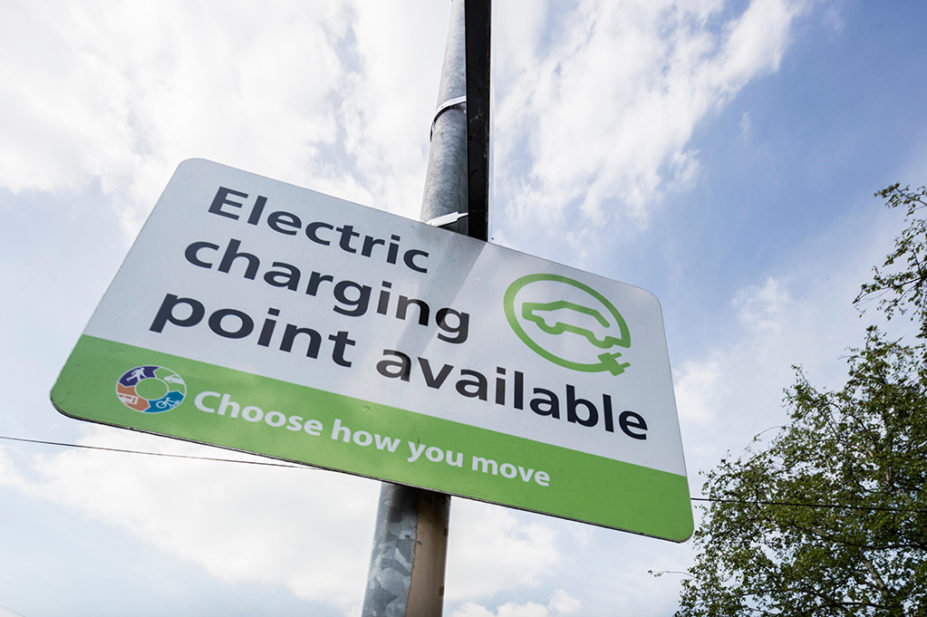
Paul Weston / Alamy Stock Photo
NHS England and NHS Improvement (NHSE&I) have yet to finalise plans for when zero emission ambulances will be rolled out across England; however, trials in parts of the UK could start in 2022, The Pharmaceutical Journal has been told.
This comes after the NHS unveiled the world’s first zero emission ambulance at the UN global summit COP26 in October 2021.
At the time, NHSE&I said it would work with ambulance trusts to trial the vehicle, which can travel up to 300 miles on one charge, and develop an operational plan for their use throughout the NHS.
A spokesperson for NHS England told The Pharmaceutical Journal in February 2022, that it was still something the organisation was “looking into and planning for”.
However, Alexis Percival, environmental and sustainability manager at Yorkshire Ambulance Service NHS Trust — who worked on developing the NHS’s zero emission ambulance ‘ZERRO’ — said its build was “coming to completion”.
“[The NHS] will be running trials around the UK this year. The trials will be held in London and Yorkshire at least. I think there are some electric hybrids that are being built at the moment for across the country as well,” she said.
The first and only fully electric ambulance in England has been in use by the West Midlands Ambulance Service since October 2020.
However, the zero emission ambulance unveiled at COP26 is a hydrogen-electric ambulance.
“Fundamentally the difference is the range,” explained Percival. “The electric one can do around 100 miles [per charge], whereas the hope is that the ‘ZERRO’ will do around 300 miles.”
An analysis by The Pharmaceutical Journal of 38 draft ‘green plans’ developed by trusts to set out their aims for carbon reduction revealed that nine trusts included plans to make low or zero emission ambulances a priority.
The draft plans, which were obtained through a Freedom of Information (FOI) request to all trusts in England in September 2021, were due to be submitted to integrated care systems by 14 January 2022.
However, Richard Hixson, clinical lead for sustainability at County Durham and Darlington NHS Foundation Trust, highlighted that zero emission ambulances should address pollution as well as emissions.
“Their tyres and brake discs are [still] putting lots of stuff into the road that gets washed out into the ocean, so they need some collectors on their zero emission ambulances to address pollution as well as emissions,” he said.
Nevertheless, the green plans seen by The Pharmaceutical Journal show that hospital trusts are embracing the increasing availability of electric vehicles (EVs) in other ways.
Half of the plans (19) detailed proposals for more EV charging points to be used by staff and patients, and 29% of the plans contained details of an EV car lease scheme for staff.
Leeds Teaching Hospitals NHS Trust is reducing the local air quality impact associated with travel and transport to and from NHS sites by providing ultra low emission shuttle buses and promoting a ‘one-day-a-week’ campaign for using the buses.
Libby Sutherland, the trust’s sustainability manager, said: “We’ve done quite a bit [of work] on encouraging staff not to use their car to come to site.
“People have a lot of barriers as to why they can’t get out of their car, but if they do it once they realise the bus isn’t that bad, they feel a lot better and then change their behaviour and tend to do it more than one day a week — it’s just getting them to make that transition.”
In addition to reducing travel emissions, the draft green plans highlight the ambitions of trust to tackle plastic waste, dispose of medicines appropriately, introduce greener spaces on hospital sites and decarbonise hospital buildings.
Of the 38 draft plans received through the FOI request, 82% said they had made the switch to renewable energy, 26% plan to increase virtual consultations and 63% of plans detail a drive towards healthy and more sustainable eating.
Following the 14 January 2022 deadline given by NHS England for NHS trusts to finalise and submitting their green plans to their integrated care system (ICS), each ICS are now developing a consolidated system-wide green plan to be submitted by 31 March 2022, which will be peer reviewed regionally before being published.


